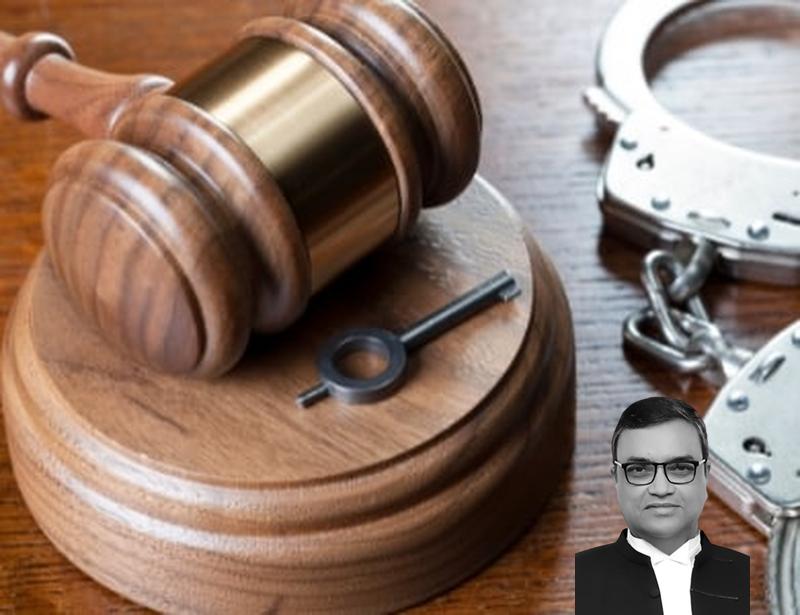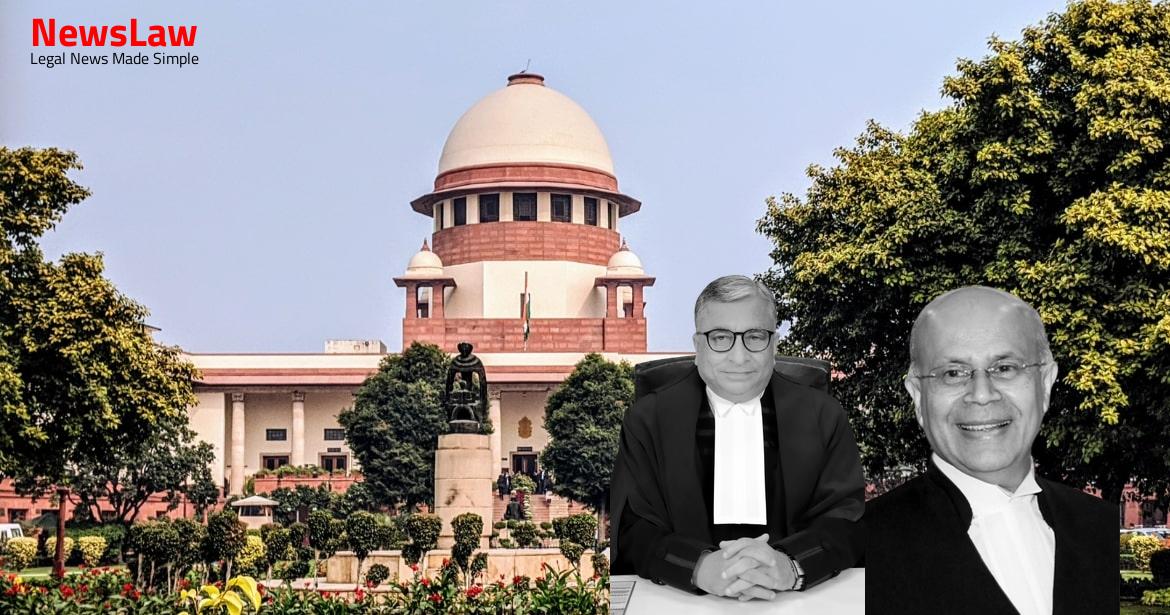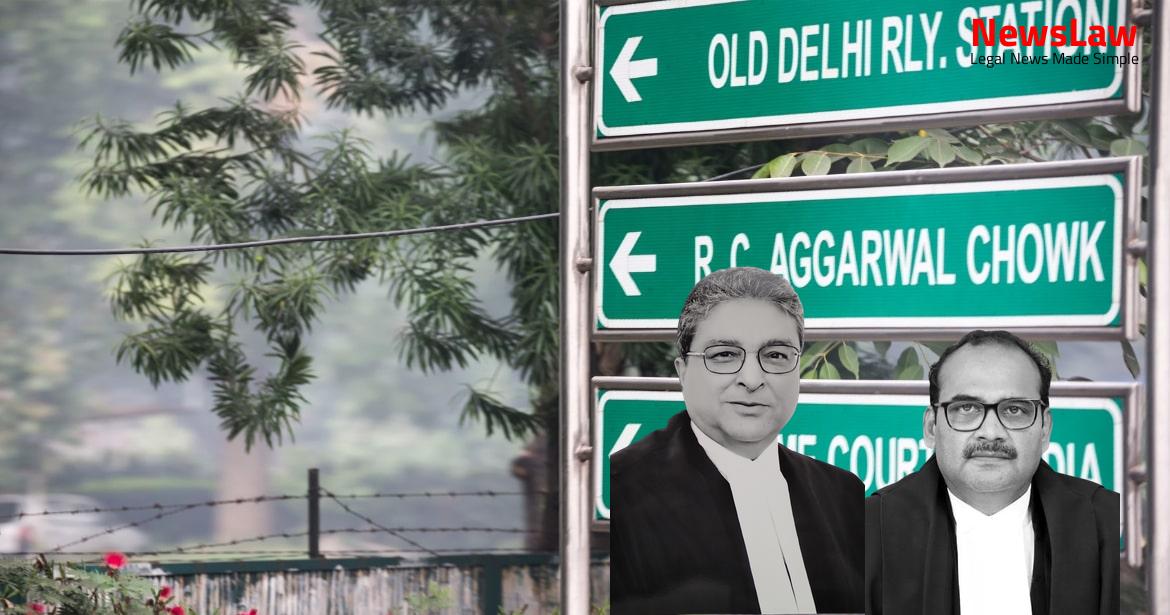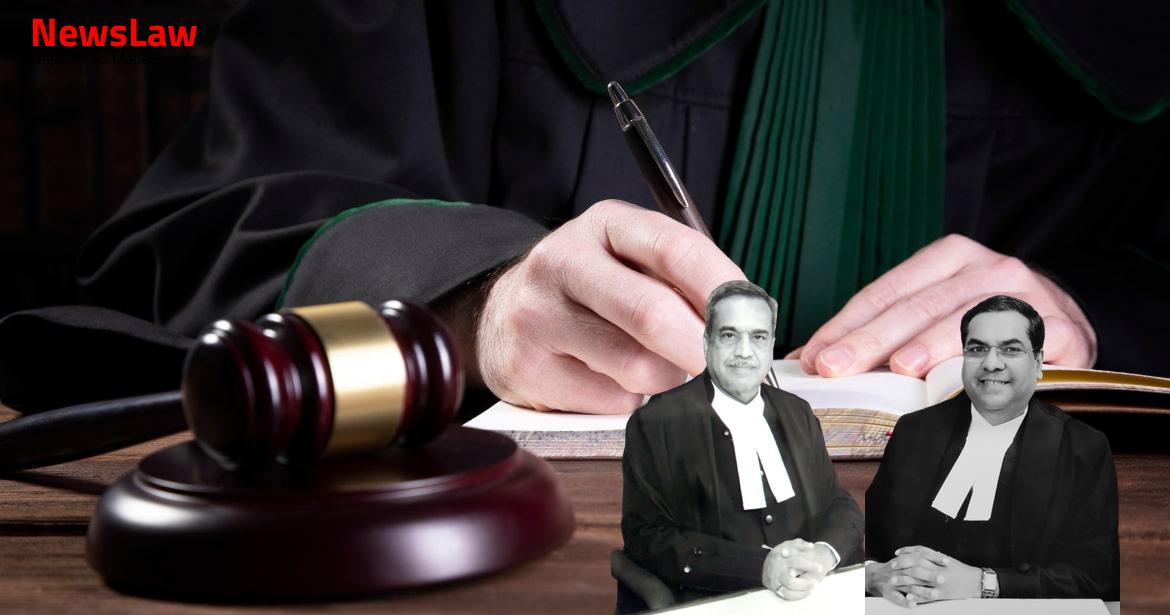5,000.00 and a default sentence of three months, Kallu assailed his conviction for the offence punishable under Section 120-B, IPC and sentence of rigorous imprisonment of ten years with a fine of Rs. The aforesaid judgment having been confirmed by the High Court, all the accused persons preferred Special Leave Petitions (“SLPs”, hereafter) before this Court challenging the common judgment dated 12 October, 2022. Consequently, he was arrested on 9 May, 2010. The specific allegations against Kallu, former driver of the complainant, pertain to his involvement in a conspiracy with other co-accused persons.
Based on the complainant’s testimony, it is established that among the four accused present at the scene during the incident, Suleman, Arif, and Jaihind were duly identified by the complainant, but the fourth accused remained unidentified. for 10 years with a fine of Rs 5,000 Default: 1 month and 3 months, respectively Kallu Section 120- B, IPC R.I. The Trial Court drew presumption under Section 114 of the Indian Evidence Act, 1872 (“Evidence Act”, hereafter), to the extent it provides that “a man who is in possession of stolen goods soon after the theft is either the thief or has received the goods knowing them to be stolen unless he can account for his possession”. The aforesaid judgment having been challenged by Manoj and Kallu, a learned Single Judge of the High Court was of the view that the findings of the Trial Court did not warrant any interference and that the appeals were devoid of any merit; hence, the same were dismissed. b)
There were serious procedural lapses in conducting the identification process in respect of the articles. 8 c)
The Trial Court recorded the statement of Manoj under Section 313, Cr.
Supporting the conviction and sentence of Manoj, the learned counsel urged this Court to dismiss the appeal. c) Suresh Chandra Bahri vs State of Bihar was placed to support the contention that the essential elements of an agreement between Kallu and the other co-accused persons to commit the offence are lacking, which is a necessary component to bring home the charge of criminal conspiracy. Topandas vs State of Bombay was placed for supporting the contention that one person alone can never be held guilty of criminal conspiracy for the simple reason that one cannot conspire with oneself. It was submitted by him that the Trial Court has carefully considered all the materials placed on record and arrived at a just conclusion. We have considered the submissions advanced by learned counsel for the parties and have also perused the materials on record. Manoj’s involvement was primarily based on the disclosure statements made by co-accused Suleman and Jaihind where they admitted to selling the stolen articles to him and a similar statement made by Manoj himself which led to recovery under Section 27, Evidence Act.
The decision of the Privy Council in Pulukuri Kotayya and others vs King-Emperor holds the field even today wherein it was held that the provided information must be directly relevant to the discovered 13 fact, including details about the physical object, its place of origin, and the accused person’s awareness of these aspects.
…In dealing with a criminal case where the prosecution relies upon the confession of one accused person against another accused person, the proper approach to adopt is to consider the other evidence against such an accused person, and if the said evidence appears to be satisfactory and the court is inclined to hold that the said evidence may sustain the charge framed against the said accused person, the court turns to the confession with a view to assure itself that the conclusion which it is inclined to draw from the other evidence is right. …, the disclosure statement of one accused cannot be accepted as a proof of the appellant having knowledge of utensils being stolen goods.
under Section 27, Evidence Act upon the disclosure statements by Manoj, Kallu and the other co-accused could be held to have led to discovery of facts and may be admissible, the same cannot be held to be credible in view of the other evidence available on record. But if the Court has — (i) to completely disregard the lack of corroboration of the testimony of police witnesses by independent witnesses; and (ii) to turn a Nelson’s eye to the independent witnesses turning hostile, then the story of the prosecution should be very convincing and the testimony of the official witnesses notably trustworthy. We cannot overlook the significance of the circumstance that all four 16 independent seizure witnesses (PWs 5, 6, 11, and 16), who were allegedly present during the seizure/recovery of the stolen articles from Manoj’s house, having turned hostile and not support the prosecution case, the standalone evidence of the I.O.
3,000.00 (comprised of three one-thousand-rupee notes), seized the same in the presence of witnesses, and prepared a seizure panchnama; however, when one looks at the complainant’s version, it is wholly inconsistent. We need not reiterate the exposition of law by this Court in multiple decisions on Section 313, Cr.PC, wherein trial courts have been cautioned against recording statements in a casual and cursory manner. Manoj has been convicted under Section 411, IPC which is reproduced below: Dishonestly receiving stolen property. —The Court may presume the existence of any fact which it thinks likely to have happened, regard being had to the common course of natural events, human conduct and public and private business, in their relation to the facts of the particular case. The nature of the stolen articles, the nature of its identification by the owner, the place and the circumstances of its recovery, the intervening period between the date of occurrence and the date of recovery, the explanation of the persons concerned from whom the recovery is made are all factors which are to be taken into consideration in arriving at a decision. Manoj’s conviction, solely relying on the disclosure statements made by himself and the other co-accused, does not suffice to warrant a presumption under Section 411, IPC. It is intriguing that among all five accused persons, only Kallu has been convicted for criminal conspiracy under Section 120-B, IPC. King-Emperor, the Calcutta High Court further clarified the law related to criminal conspiracy: The rule of English law that is now well settled is that where two persons are indicted for conspiring together and they are tried together, both must be acquitted, or both convicted. … on the charge as it was framed against the Accused 1, 2, 3 and 4 in this case, the Accused 1 could not be convicted of the offence under Section 120-B of the Indian Penal Code when his alleged co-conspirators Accused 2, 3 and 4 were acquitted of that offence. Revised ITEM NO.1502 COURT NO.5 SECTION II-A (For Judgment) S U P R E M E C O U R T
Also Read: https://newslaw.in/supreme-court/appellant-convicted-for-culpable-homicide-not-amounting-to-murder/
O F
I N D
I A RECORD OF PROCEEDINGS Criminal Appeal No(s).1030/2023 MANOJ KUMAR SONI Appellant(s) VERSUS THE STATE OF M.P.
(SATISH KUMAR YADAV) (PREETHI T.C.) DEPUTY REGISTRAR COURT MASTER (NSH) ITEM NO.1502 COURT NO.5 SECTION II-A (For Judgment
Also Read: https://newslaw.in/supreme-court/ownership-dispute-commissioners-order-and-revenue-documents/
) S U P R E M E C O U R T O F I N D I A RECORD OF PROCEEDINGS Criminal Appeal No(s).1030/2023 DIPANKAR DATTA, JJ.]
Case Title: MANOJ KUMAR SONI Vs. THE STATE OF M.P. (2023 INSC 705)
Case Number: Crl.A. No.-001030-001030 / 2023



